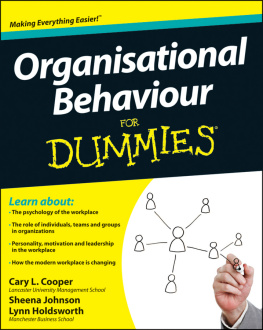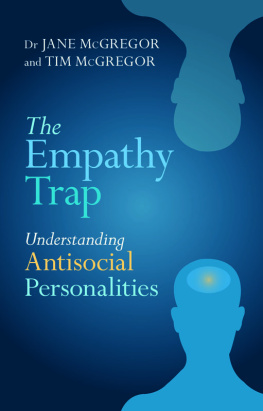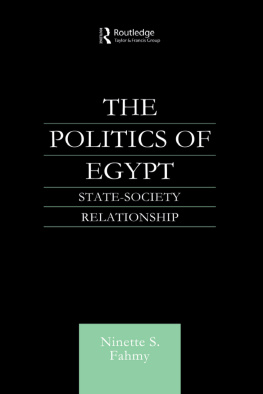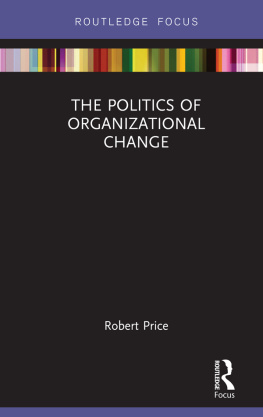Routledge Advances in Criminology
1. Family Life and Youth Offending
Home Is Where the Hurt Is
Raymond Arthur
2. Chinas Death Penalty
History, Law, and Contemporary Practices
Hong Lu and Terance D. Miethe
3. The Politics of Antisocial Behaviour
Amoral Panics
Stuart Waiton
The Politics of Antisocial Behaviour
Amoral Panics
Stuart Waiton

New York London
First published 2008
by Routledge
270 Madison Ave, New York, NY 10016
Simultaneously published in the UK
by Routledge
2 Park Square, Milton Park, Abingdon, Oxon OX14 4RN
Routledge is an imprint of the Taylor & Francis Group, an informa business
This edition published in the Taylor & Francis e-Library, 2007.
To purchase your own copy of this or any of Taylor & Francis or Routledges collection of thousands of eBooks please go to www.eBookstore.tandf.co.uk.
2008 Taylor & Francis
All rights reserved. No part of this book may be reprinted or reproduced or utilised in any form or by any electronic, mechanical, or other means, now known or hereafter invented, including photocopying and recording, or in any information storage or retrieval system, without permission in writing from the publishers.
Trademark Notice: Product or corporate names may be trademarks or registered trademarks, and are used only for identification and explanation without intent to infringe.
Library of Congress Cataloging in Publication Data
Waiton, Stuart.
The politics of antisocial behaviour : amoral panics / Stuart Waiton.
p. cm.(Routledge advances in criminology ; 3)
Includes bibliographical references and index.
ISBN 978-0-415-95705-2 (hardback : alk. paper)
1. Deviant behaviorGreat Britain. 2. Moral panicsGreat Britain. 3. Fear of crimeGreat Britain. I. Title.
HM811.W39 2008
302'.170941--dc22 2007025255
ISBN13: 978-1-135-90931-4 ePub ISBN
ISBN10: 0-415-95705-2 (hbk)
ISBN10: 0-415-87272-3 (pbk)
ISBN10: 0-203-93837-2 (ebk)
ISBN13: 978-0-415-95705-2 (hbk)
ISBN13: 978-0-415-87272-0 (pbk)
ISBN13: 978-0-203-93837-9 (ebk)
Dedicated to Penny Lewis
Foreword
British and American sociologists who study deviance and social problems have been talking withand sometimes pastone another for more than forty years. In the 1960s, Americans developing the so-called labeling approach to deviance inspired British sociologists to establish their own National Deviancy Conference. Perhaps the most influential concept to emerge from that work was moral panicfirst used by Jock Young and then Stanley Cohen, both active in the NDC.
But labeling faltered in the 1970s, after it came under attack from several directions. In particular, radical criminologistsparticularly in Britain, and including Young and others prominent in the NDCchallenged labelings political assumptions. British studies of deviance and moral panics took a turn that was both political and culturalheavily theorized interpretations of skinheads, punks, and muggers flourished
Meanwhile, in the U.S., some sociologists associated with labeling began to shift their attention to the social construction of social problems. By the early 1980s, there were already dozens of constructionist case studies, and the approach continued to expand. Constructionism offered advantages. Whereas labeling confronted rivalsometimes quite hostileinterpretations of deviance, there was no other, theoretically coherent approach to the study of social problems, so constructionists had the field to themselves. In addition, constructionist analyses permitted a range of interpretative stances: one could debunk one set of claims, while celebrating the successes of another set of claimsmakers. Constructionism did not require analysts adopt particular political or ideological assumptions.
By the 1990s, constructionist analysis had spread to Britain. In Intimate Enemies: Moral Panics in Contemporary Great Britain (1992), Philip Jenkins (educated in the U.K., but now based in the U.S.) demonstrated how several claimsmaking campaigns that had been launched in the U.S. had spread across the Atlantic. By the end of the decade, there was a substantial body of work examining British claims by such British sociologists as Frank Furedi (1997, 2001), Adam Burgess (2004), Ellie Lee (2003), and Stuart Waiton (2001).
This new volume by Waiton should prompt another round of cross-Atlantic conversation. British and American analysts have always made rather different uses of the idea of moral panic. Americans tended to emphasis the quality of panicthe sense of heightened, exaggerated alarm that characterized many social-problems claims. In contrast, British sociologists put more weight on the moral qualities of moral panics. In keeping with British sociologys tendency to emphasize politics and ideology, analysts in the U.K. understood moral panics as conservative efforts to denounce threats to the established moral order.
But, by the turn of the millennium, it was hard to identify many successful social problems campaigns mounted in either country solely by conservative claimsmakers. Increasingly, for instance, moral conservatives in both the U.S. and the U.K. found themselves allied with at least some feminists in campaigns about such issues as pornography, child sexual abuse, and satanic ritual abuse. This required rhetorical shifts, so that, for example, instead of emphasizing pornographys immoral qualities, advocates now charged that it led to sex crimes, the exploitation of women doing sex work, and the objectification of women generally. Morality was downplayed, and victimization emphasized.
Further, as Waiton demonstrates, a growing body of other alarms is framed in terms of risks, rather than morality. Fetal alcohol syndrome, secondhand smoke, avian flu, road rage, climate change, the digital divide, and countless other phenomena are constructed as threats by physicians, scientists, and other expert claimsmakers who avoid the language of morality, in favor of claims about endangerment and victimization. To describe these new campaigns, Waiton has coined the fabulous term amoral panic.
At least to an American reader, one of the most interesting aspects of this story is the realization that some social-problems claims travel better than others. Road rage made the transition from the U.K. to the U.S., but claims about workplace bullying and antisocial behavior havent really caught on over here. Similarly, Waiton builds an elaborate argument that British politics has been transformed by a rhetoric of risk that permeates discussions of many aspects of social policy. This is, I think, less evident in the U.S., where recent discussions of the American federal governments role in social policy have tended to revolve around just a few key issueswelfare reform, education, immigration, and health care. While the rhetoric of risk appears in some of these debates, its role seems less central in the U.S. Hopefully, American scholars will take up Waitons challenge, and explore the similarities and differences in how our two societies go about both claimsmaking and policymaking.








